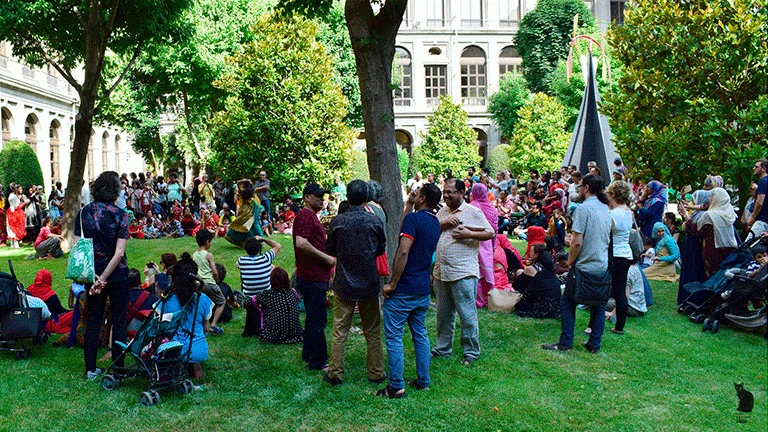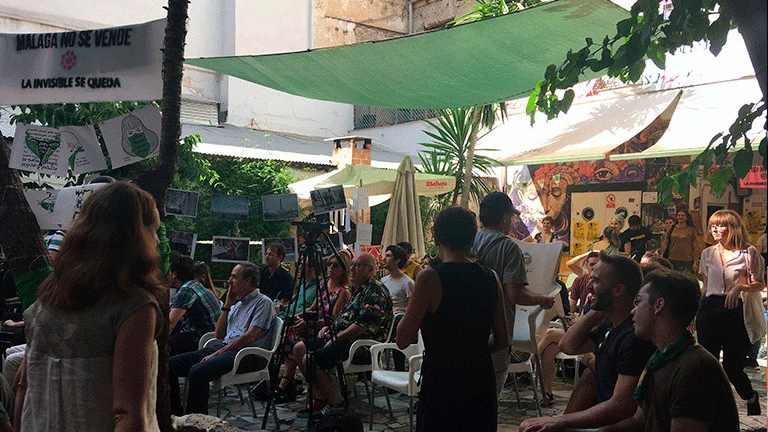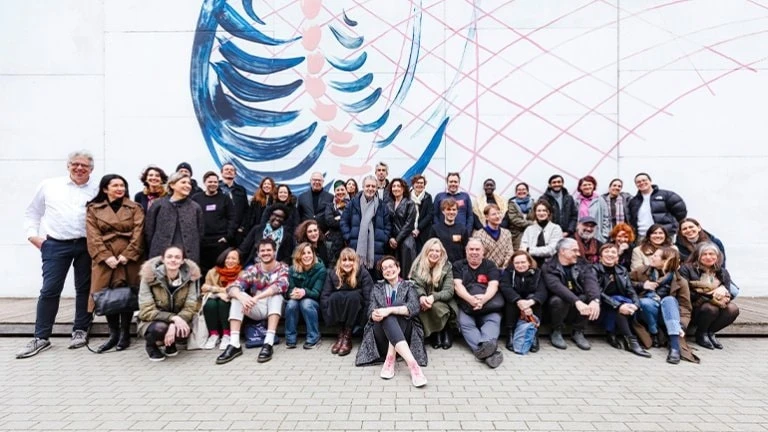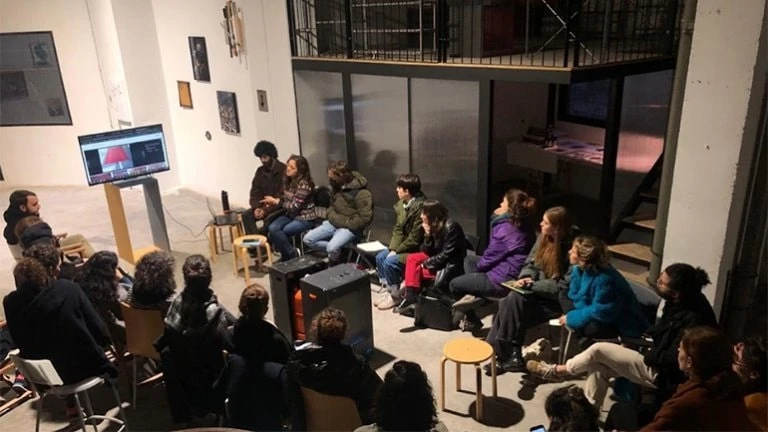The Tentacular Museum
The Tentacular Museum articulates and cultivates the different collaborative networks the Museo Reina Sofía works with, networks that nurture and negotiate relations which, with their contexts and social demands, run through the institution. Therefore, in focusing on their different scales, modes of operating and subjects, three general working frameworks converge: Citizens and Commons, Art and Social Transformation, and Institutional Solidarity.
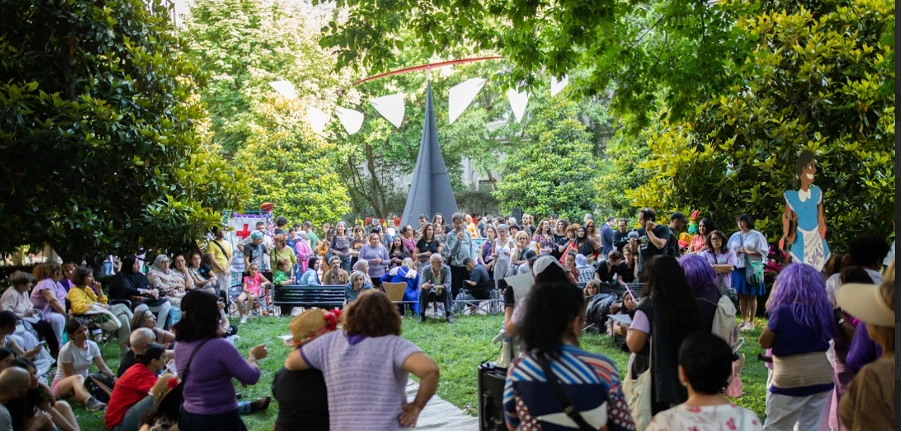
The Tentacular Museum is rooted in the concept of Museo en Red (The Networked Museum), which encapsulated the institutional experiments the Museo Reina Sofía initiated in 2008. From 2023 onwards, at the dawn of a new institutional phase, these same experiments now operate under the Tentacular Museum. According to theorist Donna Haraway, tentacular refers to a de-regulated and multiplying “making-with” based on the practice of “with-touch”, a practice of touching and feeling realities, initiatives, ideas and urgencies to establish meaningful connections. As a result, the Tentacular Museum transcends the logic of geographic proximity to consider a situated social, political and affective institutionality in the present context, while acknowledging that it is part of a broader cultural fabric.
By way of different activities, work groups and publications, the Tentacular Museum assays co-responsible modalities of programming, sharing and listening which weave a free-flowing ecosystem of alliances and exchanges around, inside and outside the Museo. A framework which flows beyond the sphere of art. Thus, connections are made with adjacent spheres, such as social movements and cultural policies, while institutional space and the notion of the public become porous to the different realities with which they come into contact. The Museo is consequently upheld as a place of encounter, as well as a space of friction and debate, where the different realities and socio-historical process traversing it — be it the neighbourhood, the city, the State or the world — question and transform its modes of action.
Citizens and Commons
Art and Social Transformation

Red Conceptualismos del Sur
An international platform of work, thought and collective stances
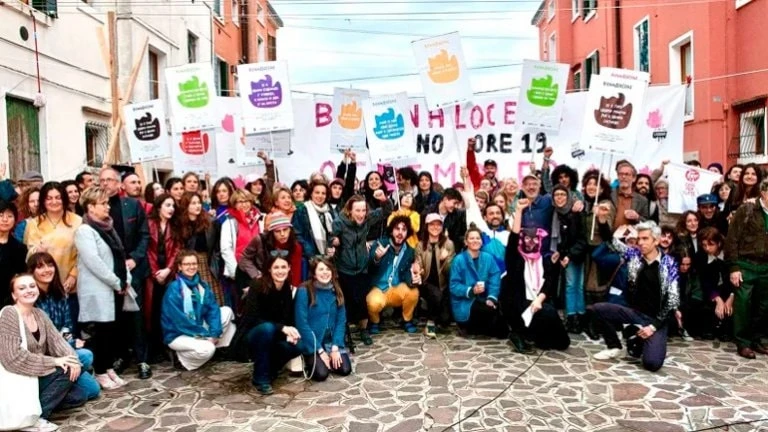
Institute of Radical Imagination
IRI is a Mediterranean network which advocates post-capitalist ways of life
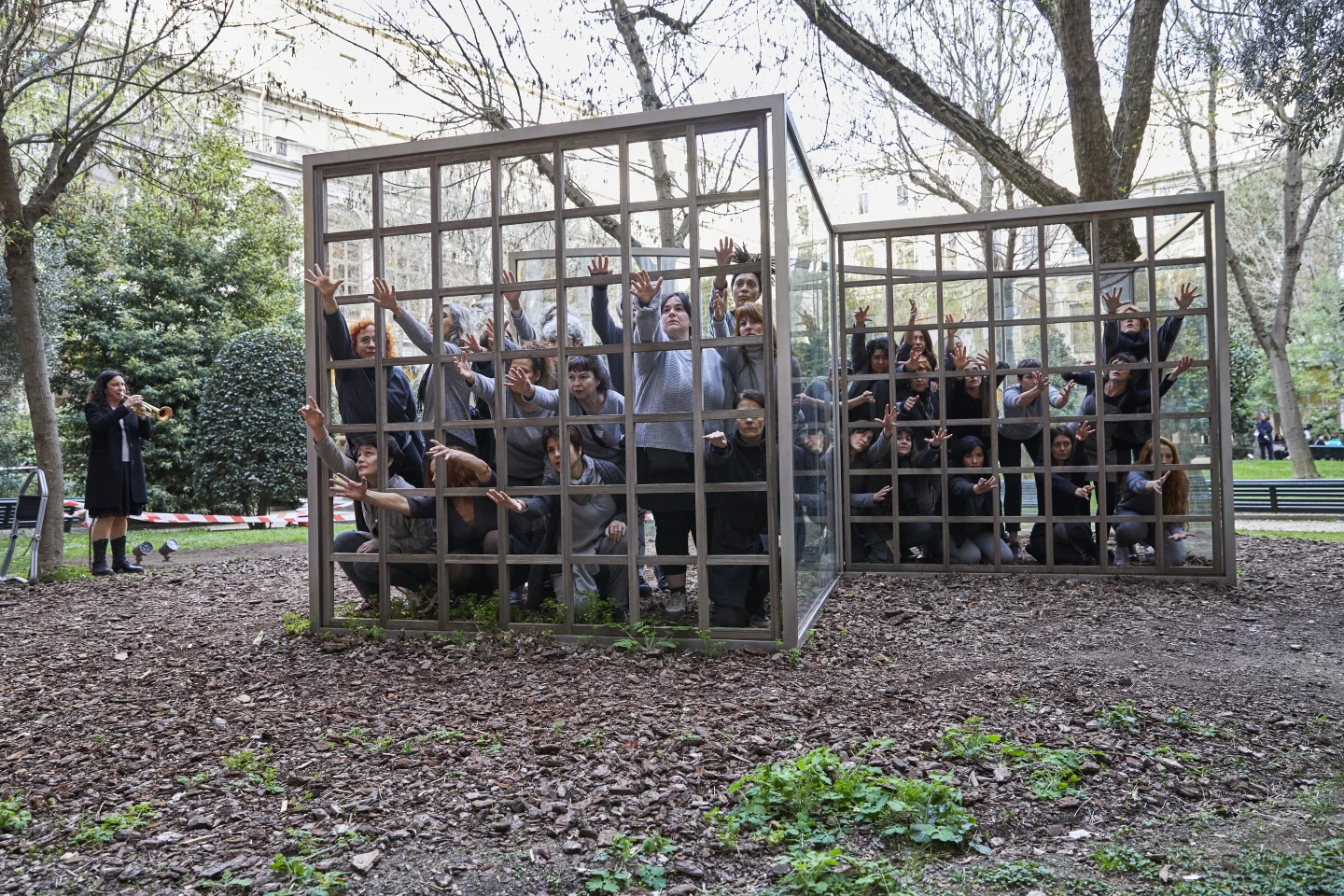
Red de Museos por la Igualdad
Museums and art centers committed to gender equality from an intersectional perspective
